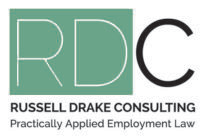Under Section 114 of the Employment Relations Act 2000, an employee has a statutory right to raise a personal grievance against their employer if they believe that they have been subjected to unjustified action with the Act stating that this must be notified to the employer “within the period of 90 days beginning with the date on which the action alleged to amount to a personal grievance occurred, or came to the notice of the employee, whichever is later”.
Clearly, this does not imply that a strict 90-day calendar period can be relied upon and therefore, when does it become too late to raise a claim?
A recent case in the Employment Relations Authority (ERA) – Gera v Hertz New Zealand Limited [2023] NZERA 158 3177052 required this question to be answered.
Mr Gera had originally been employed by Ace Rental Cars with that company subsequently being taken over by Hertz in 2013. Mr Gera resigned from his employment in late 2013 for health-related reasons but did not notify Hertz of his personal grievance until March 2022. Mr Gera also raised claims against Hertz for failing to pay him for his notice period and not providing him with a phone, laptop or health insurance during his employment.
Mr Gera stated that ‘he had only noticed now’ (March 2022) that the health benefits provided for in his employment agreement had not been provided. On this basis (despite the 9-year period between the end of his employment and the raising of the personal grievance) Mr Gera stated that – on the basis of s114 ‘…or came to the notice of the employee’, he was still within time to pursue a grievance claim.
In investigating these claims, the ERA also noted the legislative provisions that ‘an application to the Authority must be raised within three years after the date on which the grievance was raised’ and ‘claims for breaches of an employment agreement must be lodged in the Authority no later than six years after the date on which the cause of the action arose’. The Act (s219 and 221) also gives powers to the Authority to extend the time within which proceedings can occur, however, case law confirms that those sections cannot be used to override the limitation periods set for pursuing claims unless leave is sought and granted on exceptional circumstances.
The ERA investigated this matter and concluded that Mr Gera’s claims fell outside of the statutory periods, that there were no exceptional circumstances existing and that, as such, he was prohibited from pursuing his claims. The unfortunate consequence here for the employer was that they were required to participate in mediation and the ERA process (albeit that this was conducted on a ‘on the papers’ only basis rather than a physical investigation meeting) and that they, therefore, incurred unnecessary costs in defending a claim that lacked substance.
The principles that emerge from this case regarding the ‘out of time’ question is therefore:
- The statutory calendar 90-day period commences from the end of the employee’s notice period – not the day that notice of resignation or termination occurs, unless the two are the same.
- If the IEA does not contain a clause advising the employee of the 90-day provision, the statutory period may not apply at all with the grievance being able to be legitimately raised outside of this period.
- Where the employee can demonstrate that ‘exceptional circumstances’ prevented them from raising the grievance within the initial 90-day period, the grievance may still be valid if raised after this time.
- The ‘when the employee first became aware’ provision may be subjective but can be overriding if the matter is not filed in the ERA within 3 years.
- An employer may consent (grant leave) for employee to raise a personal grievance outside of the 90-day period.
If you receive a personal grievance and believe that there may be issues with respect to the validity of the timeframe in which it has been raised, we recommend that you contact us to discuss this prior to even acknowledging receipt of the grievance.
For all matters associated with personal grievance claims by employees, we have an experienced team of employment relations consultants within our team who can assist you to resolve these in a timely and cost-effective manner.

